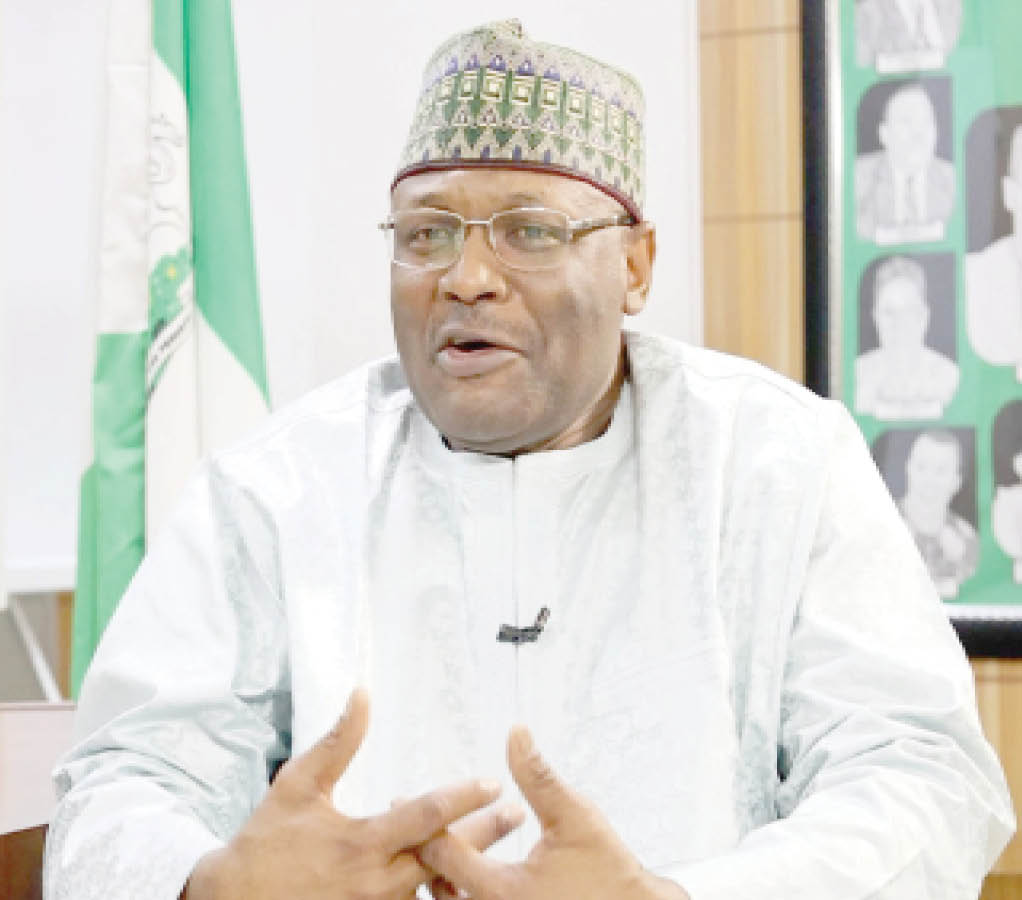All eyes on INEC
As Nigerians count down to voting in federal and state-wide elections on February 25 and March 11, respectively, all eyes will be on the umpire, the Independent National Electoral Commission (INEC), to deliver a free and fair election without much hassle. Given the history of elections in this country, the recent changes in the electoral […]

Professor Mahmood Yakubu
As Nigerians count down to voting in federal and state-wide elections on February 25 and March 11, respectively, all eyes will be on the umpire, the Independent National Electoral Commission (INEC), to deliver a free and fair election without much hassle. Given the history of elections in this country, the recent changes in the electoral law, and all-round partisan interest by politicians and voters alike, Nigerians have much to expect from INEC in this election.
INEC has come a long way in our democracy, but has not always lived up to the expectations of Nigerians for a free and fair election. Established in 1998 on the eve of Nigeria’s return to democracy after long years of military rule, INEC quickly gained a reputation for overseeing some of the worst elections in Nigerian history. Since the 2011 general elections, however, there are solid indications that INEC’s reputation as Nigeria’s Electoral Management Body (EMB) has taken a considerable positive turn, and today, the commission is arguably one of the most improved democratic institutions in the country, at least, in terms of doing what it does better each time, and improving its processes, procedures and results.
The indications for this are many and varied. Compared to the first three, its last three general elections in 2011, 2015 and 2019 were widely acclaimed as having grown markedly in quality and integrity by local and international observers alike. Second, opposition parties and candidates have won against incumbents in presidential, gubernatorial, senatorial, and recent other elections, indicating the growing independence of INEC as an EMB. Of the past four off-season governorship elections held in the 20-month period between September 2020 and July 2022 in Edo, Anambra, Ekiti and Osun states, three were won by opposition party candidates, and only one by the ruling party at the national level. This was not the case in the past.
Third, the number of elections overturned by the courts has reduced significantly in Nigeria since 2011, indicating improvements in INEC’s systems and methods over the last three election cycles. For example, of the five governorship elections conclusively upturned by the courts in the 20-year period between 2003 and 2023, four of them happened before 2011, and only one—that of Emeka Ihedioha of the PDP to Hope Uzodimma of the APC in 2019—occurred after 2011. The most recent case of such governorship elections, that of Osun State in 2022, is still in court and no one knows yet what the final outcome will be. Therefore, the fact that major elections declared by INEC are holding up to scrutiny by the courts since 2011, unlike in the past, is itself both a reason and an indication of Nigerians’ growing confidence in the commission and its systems.
- Vote competent, transparent leaders, Catholic bishops tell Nigerians
- BUK expels 27 students for exam malpractice
Moreover, since the 2011 general elections, INEC has also earned the confidence of both local and international election observers and friends of Nigerian democracy, at least by a more considerable extent than in the elections before 2011. For example, in an address at the 20th Daily Trust Dialogue in Abuja late last month, the US Ambassador to Nigeria, Mary Beth Leonard, said the US government had full confidence in the ability of INEC to conduct free and fair election, a view she repeated in a statement only last week. On both occasions, Ms Leonard singled out the Electoral Act 2022 and INEC’s new innovation, the Biometric Voter Accreditation System (BVAS), for praise.
At Daily Trust, we similarly have confidence in the ability of INEC to deliver free and fair elections to Nigerians this weekend and next month. We believe that INEC has much improved from the days when it declared results even while Nigerians were still voting in long queues. We must warn, however, that there is no room for INEC to relent. Past success may be a useful indication of ability in the present, but previous performance alone does not always meet the demands of the moment.
This will be the seventh general election conducted by INEC since our return to democracy in 1999. Regardless of recent successes, INEC must make it work, after all, each election is different. BVAS and other new innovations to be deployed in this election must work, and be seen to work well. The commission’s staff must also be professional at all times; they must not only eschew any tendencies to be compromised in any form, they must also be patient with voters in order to avoid disenfranchising many for their lack of understanding of the technology or process, rather than for any other factors. The deployment of election materials and the commencement of accreditation and voting must go on schedule to avoid the pitfalls that have perennially been associated with these in previous elections.
INEC must not fail Nigerians in this election.
